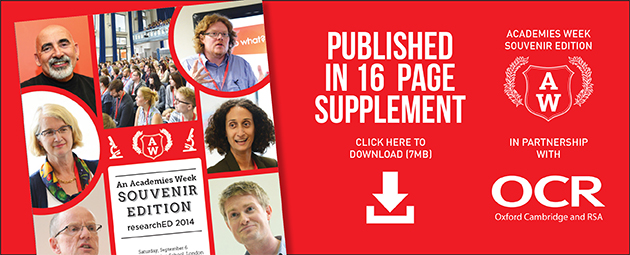Rebecca Allen, reader in the economics of education at the Institute of Education, asks whether teacher journal clubs can improve classroom practice
A teacher journal club is the professional version of a book club. A group of teachers regularly meets after school to discuss pre-chosen academic articles of direct relevance to pedagogy and classroom practice.
The standard format is the presentation of an article by one teacher, followed by group discussion about the article and the insights it gives. At the end of a session the teachers work to decide whether, and how, to apply any useful insights into practice.
By participating in a journal club, a teacher is able to recognise and modify the “habits” of their current classroom practice. In this sense their purpose is similar to the traditional “broadcast” model of a CPD session. However, by allowing teachers to choose goals for themselves that are very precisely specified (when, where and how will practice be changed) in the presence of professional peers, change is more likely to be successful.
Sam Sims and I first heard Dr Ben Goldacre talk about journal clubs during researchED2013, drawing the analogy with his own field of health where they are widely used by doctors to keep up-to-date with medical developments. By contrast, there are fewer examples of their use in teaching – we are aware networks of science teachers have used them to keep abreast of scientific advances and some teacher learning communities have chosen to engage with research in this way.
The problem is drawing up a shortlist, not selecting an appealing article from it
We were both pleased to meet a number of teachers at researched who were already running a journal club or who were looking to set one up. They described to us the difficulties they face in trying to find appropriate academic articles for their sessions.
The problem is not selecting an appealing article from a shortlist – in our session there was surprising agreement amongst our audience about which articles they would like to read the most from a list we gave them. Rather, they faced very real difficulties in knowing which journals to search (and gaining access to these journals) to draw up a shortlist in the first place.
This contrasts with medicine where there are a small number of general, reasonably non-technical journals (eg, The Lancet and British Medical Journal) to concentrate on. There is certainly an opening in the market for non-technical review journals for practising teachers.
Recruiting enough teachers to form a journal club is clearly more challenging in a primary school than in a secondary.
Recognising that some organisation might be needed in this sector, Hackney Learning Trust is exploring setting up journal clubs amongst their primary teachers and Sam is hoping to evaluate whether participant teachers increase their knowledge, reading habits and interest in research.
We know that doctor journal clubs improve their practice, which, for now, is the best claim we have for believing that the clubs are likely to change classroom practice too.
Sam’s research will form the first major evaluation of teacher journal clubs, demonstrating whether they are a good use of teacher’s very precious free time or not.
Sam Sims is running a research project on the use of teacher journal clubs and is keen to hear from teachers interested in setting one up. He can be contacted via Dr Allen (r.allen@ioe.ac.uk)
Rebecca Allen is a reader in the economics of education at the Institute of Education








Your thoughts